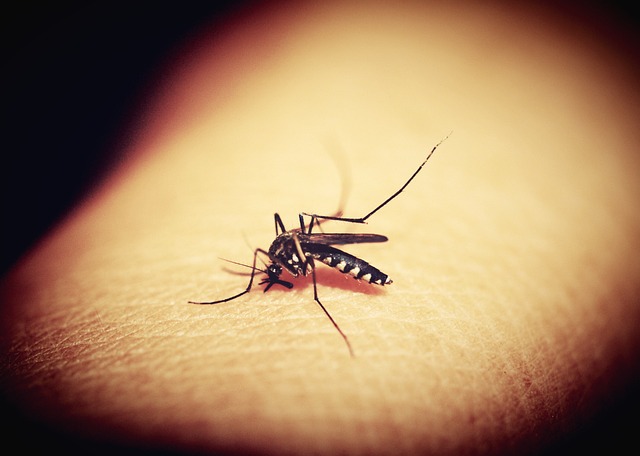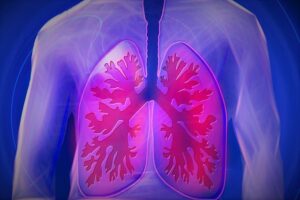Introduction
Dengue fever has become a pressing public health issue in India, with the number of cases increasing significantly in recent years. The World Health Organization (WHO) has warned that dengue rates are rising globally, and India is no exception. In this article, we will explore the current situation of dengue in India, the factors contributing to its spread, and the measures taken by the Indian Health Ministry to control the surge.
The Growing Threat of Dengue Fever
Dengue fever is a mosquito-borne viral infection that is transmitted by the Aedes aegypti mosquito, primarily found in tropical and subtropical regions. The disease is characterized by symptoms such as high fever, severe headache, joint and muscle pain, and rash. While dengue is not usually fatal, severe cases can lead to dengue hemorrhagic fever or dengue shock syndrome, which can be life-threatening.
Rapid Increase in Dengue Cases
According to the World Health Organization, the number of reported dengue cases in India has been steadily increasing over the years. In 2022, India recorded 4.2 million cases, a significant rise from the reported cases since 2000. However, it is important to note that these reported cases may represent only a fraction of the actual number of infections, as dengue is often underreported. One study suggests that the actual number of dengue cases in India could be 282 times higher than officially reported.
Factors Contributing to the Spread
Several factors contribute to the rapid spread of dengue in India. The primary factor is the favorable breeding conditions for the Aedes aegypti mosquito. Increased rainfall, particularly during the monsoon season, creates stagnant water, providing breeding grounds for mosquitoes. Additionally, urbanization and poor sanitation practices contribute to the proliferation of mosquitoes, as they thrive in areas with inadequate waste management and water storage practices.
The Impact on India’s Health System
The surge in dengue cases has placed a significant burden on India’s already strained health system. The country’s health infrastructure, particularly in urban areas, is struggling to cope with the increasing number of dengue patients. Reports of overcrowded state hospitals, patients sharing beds, and private hospitals refusing care have become common.
Underfunded and Inadequate Infrastructure
India’s health system suffers from chronic underfunding and inadequate infrastructure. Despite promises of health reforms, successive governments have curtailed funding for health ministry programs, leaving the system ill-prepared to handle outbreaks like dengue. Currently, India allocates only 1.2% of its gross domestic product (GDP) to healthcare, which is among the lowest in the world.
Poor Surveillance and Reporting
One of the challenges in tackling dengue in India is the poor surveillance and reporting system. Many cases go unreported, leading to a significant underestimation of the actual burden of the disease. Improved surveillance systems and better reporting mechanisms are crucial for accurately assessing the extent of the problem and implementing effective control measures.
The Response of the Indian Health Ministry
Recognizing the severity of the dengue outbreak, the Indian Health Ministry has taken several measures to control the surge and provide adequate care for affected individuals. These measures aim to strengthen prevention, containment, and management of the disease.
Increase in Hospital Capacity
To address the overwhelming number of dengue cases, the Indian Health Ministry has ordered the addition of more beds in state-run hospitals. This increase in capacity will help accommodate the growing number of patients and ensure they receive timely and appropriate care.
Limiting Charges for Patients
In an effort to make healthcare more accessible, the Health Ministry has implemented measures to limit charges for dengue patients. This helps alleviate the financial burden on affected individuals and encourages prompt seeking of medical attention.
Crackdown on Private Hospitals
Private hospitals that refuse to provide care to dengue patients have faced penalties and strict enforcement measures. This crackdown aims to ensure that all healthcare facilities fulfill their responsibility in treating patients and contribute to the overall efforts in combating dengue.
Training Healthcare Workers
Healthcare workers play a crucial role in dengue prevention and management. The Indian Health Ministry has prioritized training healthcare workers to enhance their knowledge and skills in diagnosing and managing dengue cases. This training helps ensure that patients receive appropriate care and that healthcare professionals are well-equipped to respond to the increasing demand.
The Way Forward: Strengthening India’s Health System
While the measures taken by the Indian Health Ministry are important steps in addressing the current dengue crisis, more comprehensive efforts are needed to strengthen India’s health system and prevent future outbreaks.
Increased Funding for Healthcare
One of the critical aspects of strengthening the health system is increased funding. The Indian government should allocate a higher percentage of the GDP towards healthcare to ensure adequate resources for disease prevention, surveillance, and treatment. This increased investment will enable the development of robust healthcare infrastructure and the recruitment of skilled healthcare professionals.
Improving Surveillance and Reporting Systems
Enhancing the surveillance and reporting systems for dengue is crucial in assessing the actual burden of the disease and implementing effective control strategies. The Indian Health Ministry should invest in technology and training to improve data collection and reporting mechanisms. This will enable timely detection of outbreaks and better resource allocation.
Promoting Public Awareness and Education
Public awareness and education play a vital role in dengue prevention. The Indian government, in collaboration with community organizations and healthcare professionals, should launch comprehensive awareness campaigns to educate the public about dengue prevention measures, mosquito control, and the importance of seeking timely medical attention.
Strengthening Vector Control Programs
Mosquito control is a key component of dengue prevention. The Indian Health Ministry should invest in comprehensive vector control programs, including regular mosquito surveillance, targeted insecticide use, and community engagement in eliminating mosquito breeding sites. This multi-faceted approach will help reduce the mosquito population and minimize the risk of dengue transmission.
Conclusion
The increasing number of dengue cases in India poses a significant public health challenge. The Indian Health Ministry has taken commendable steps to control the surge and provide adequate care for affected individuals. However, addressing the root causes of the problem, such as underfunding, poor infrastructure, and inadequate surveillance, is crucial for long-term prevention and control. By strengthening India’s health system and implementing comprehensive strategies, the country can effectively combat dengue and safeguard the well-being of its population.




